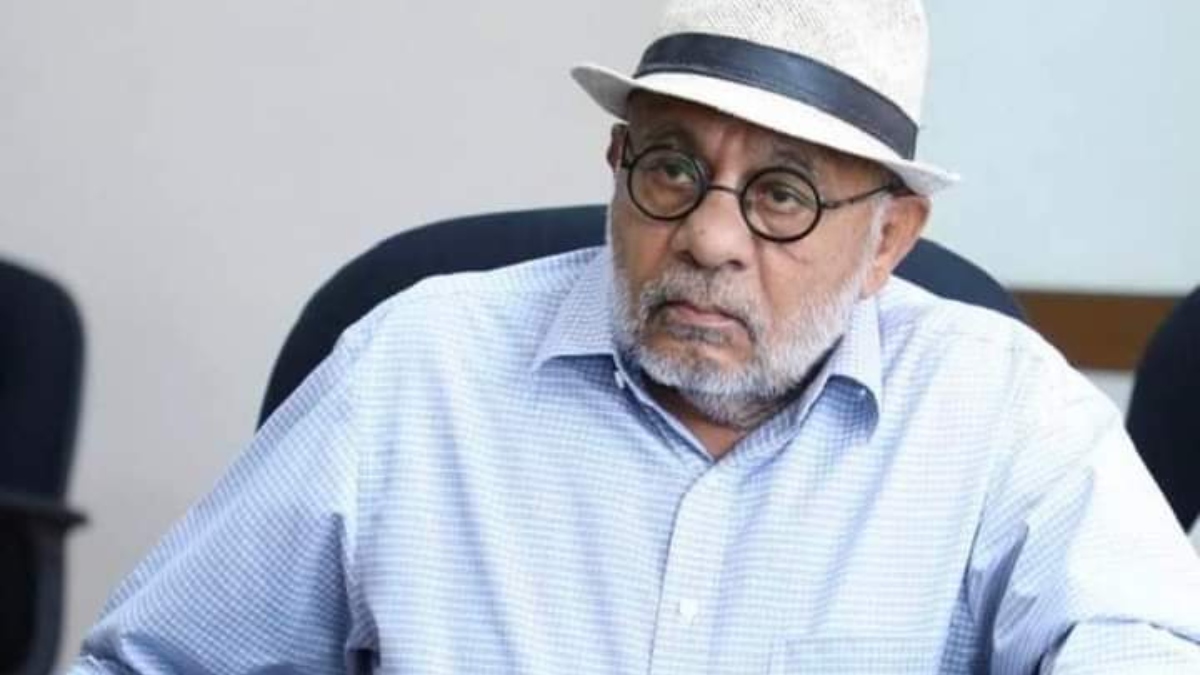The report into the tragic death of John Balson will publish in “weeks not months,” Ian Katz has said, as he revealed Channel 4 is considering rolling out additional welfare measures in true crime production. Balson committed suicide in May after working on true crime series In The Footsteps of Killers for several months and experiencing vestibular migraine disorder. There has since been an industry outpouring along with calls for improved welfare measures, and a Guardian investigation into his death put Balson back into the news agenda last week.
Katz said Channel 4 is thinking about how it could roll out the protections it has introduced for journalists reporting on the Israel-Gaza conflict to the true crime genre. “We have created specific protections for people dealing with horrific imagery and I am open to if we need similar measures in true crime,” he said. “It would be acknowledging the stress and impact of what looking at lots of upsetting imagery and testimony can take.

With Gaza imagery we are aware how much people are exposed, but we need to know more than we currently know [in true crime].” In order to gain a better understanding, the independent report into Balson’s death from legal firm Reynolds Porter Chamberlain will publish in “weeks not months,” Katz said, and the channel will take learnings from there. Balson’s family will be briefed on the learnings from the investigation but it will not necessarily be made public.
An inquest into his death is yet to take place. “Whatever that report says we are very alive to the issues around overwork of freelancers on productions,” Katz added. “There has been lots of discussion and some of that has been triggered by John’s death.
” Communication problems Elsewhere during a wide-ranging session, Katz acknowledged he would “think hardest about communication” with the indie sector the next time the network lands itself in financial bother. Katz has this week been talking up Channel 4’s current financial position compared to 12 months ago when he faced difficult questions during an Edinburgh TV Festival session and was criticized by quarters of the indie sector for saying “perhaps [we have] been a bit more honest” than rivals about the recent commissioning slowdown. Reflecting today and responding to a question from Deadline, he said “some people said I communicated too much, some said too little and I think I didn’t get it quite right.
” “Some people feel last year I gave the impression that things were going to be better than they were say three, six months down the line from Edinburgh,” she added. “We were all looking at the same projections for the ad market and it didn’t quite come.” Next time, he would “think hardest about communication and making sure we were transparent all the way through” with production companies, Katz added.
Speaking earlier this week, Katz said the ad market is “wheezing” back into life and that Channel 4’s spend for the first six months of this year will be the same as the year before Covid-19. He declined to give a figure on how many shows and how much money was spent in H1 2024. “But what I can say is there is still significant opportunity in the key genres we need to drive streaming viewing,” he added.
“Illusory” IP Katz also used his session to raise concerns that British IP could wane if the broadcasters stop taking risks, coming after MacTaggart lecturer James Graham challenged British TV gatekeepers to create “new universes.” He said the UK is too reliant on U.S.
IP, which has become a serious issue this year as U.S. buyers spend less amid market contraction.
“There is a wider problem here in that the buoyancy we thought there was in the UK film and TV industry was to an extent illusory because it was based on U.S. money and IP, and sat in the U.
S.,” he explained. “So it’s more important than ever that we invest in original British ideas and stories.
” Channel 4 also used the session to unveil a new Dan Reed-helmed doc series on the recent UK riots, while showing a clip of upcoming series Go Back To Where You Came From, a social experiment format in which Brits experience the reality of crossing perilous refugee routes to the UK. Alisa Pomeroy, who runs factual entertainment and docs for Channel 4, said it is important to “confront these opinions” as she rejected criticism of the network giving a platform to people with anti-immigration views. She added: “The Overton window of what you say in public has changed and I think it’s really important to confront these opinions rather than pushing them away from the mainstream media where they metastasise on social media and you get things like the riots that happened three weeks ago.
” Pomeroy pointed out that the original version of the format from a decade ago is now part of the Australian school curriculum. “Every Australian chooses between writing essays on Shakespeare, Orwell or watching Go Back To Where You Came From ,” she added. Katz and his commissioners were speaking on the Thursday of the Edinburgh TV Festival .
.



















